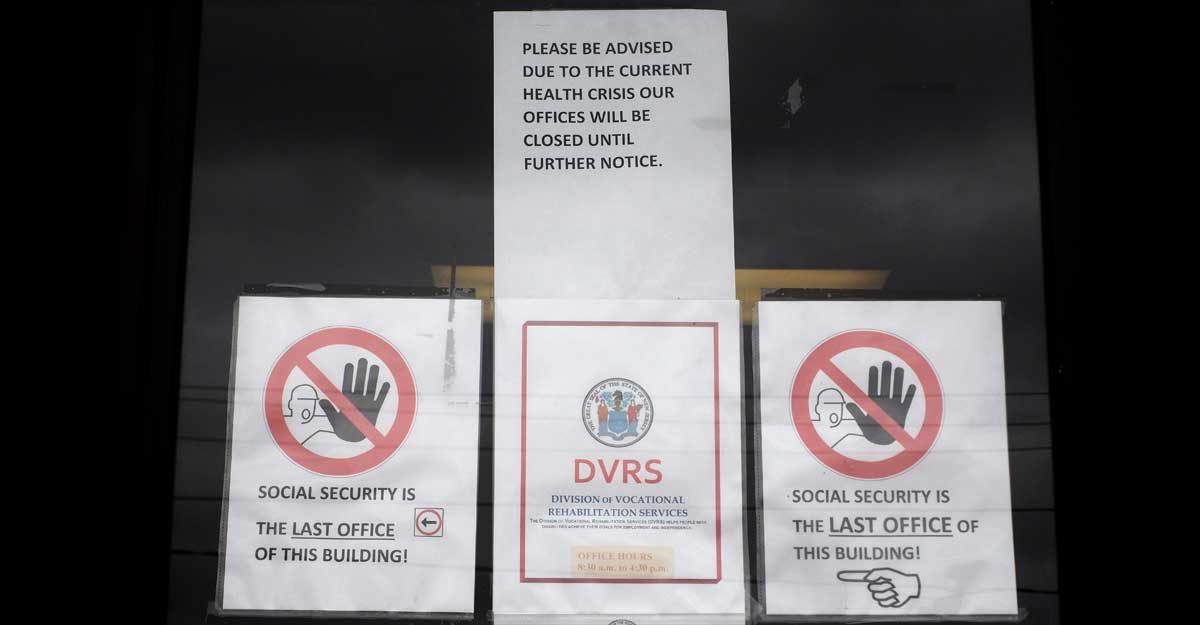New Jersey is the only state in the nation to see the number of new coronavirus cases drop in the last two weeks, but the pandemic’s financial impact continues to grow, according to a new Rutgers study.
The economic freeze, fueled by coronavirus restrictions that shut down businesses for months and urged residents to stay home, has found the Garden State experiencing historic losses and rebounds that would typically take years happen in just a few weeks.
James Hughes, economist and University professor at Rutgers University, warns the unstable economy is a “life force of its own.”
And that, he said, makes it hard to predict the long-term impact on New Jersey, which already finds itself among the worst in the nation for unemployment.
“It’s just devastating. This is the first downturn we deliberately engineered. Given the severity of the health crisis, we have to shut down the economy,” said Hughes, co-author of the “Coronavirus Economic Rebound” study. “In order to save lives, we had to sacrifice livelihoods. So that high unemployment rate is a paradox.”
In June, the state’s unemployment rate reached 16.2%, according to the Bureau of Labor Statistics, up from 15.2% in May and the highest since record keeping began in 1976.
At the second highest in the nation — behind only Massachusetts at 17.5% — the number of jobs in New Jersey are down to what they were in 1985, when at least 1.2 million fewer people lived in the state, said Hughes.
The key reason for the skyrocketing unemployment rate is that Gov. Phil Murphy was among the first to impose major lockdown restrictions, so the economy is experiencing the effects of it faster, Hughes explained.
As other states shut down, their unemployment numbers will eventually catch up.
On Thursday, the state Department of Labor announced another 25,000 New Jersey workers filed for unemployment benefits, bringing the total since March to 1.4 million workers seeking aid. That’s more than one in four workers left jobless. The department says more than $11 billion has been paid out in state and federal aid.
But it’s too soon to know if that’s a big cause for concern, Hughes said, noting the unpredictability of the last four months, including the two records — one bad, one good — the state has shattered.
After a decade of employment expansion from February 2010 to February 2020, New Jersey lost a record-breaking 10 years worth of jobs, or more than 830,000, in March and April, which is also on par with nationwide job loss.
Then, in May and June, the state broke another record by recovering roughly 220,000 jobs, the largest growth in decades, Hughes said.
“That’s just spectacular for two months, but that’s only 26% of job losses,” he said, adding that most of that was likely people going back to their old jobs.
He also noted the numbers are subject to revision by the federal Labor Department. Many economists suggest the true jobs impact may be worse.
As restaurants, retail businesses and outdoor activities continue reopening, New Jersey will see slow growth, Hughes predicts, as long as the virus stays relatively under control.
And the state’s “learning curve” as an early coronavirus hotspot could lead to better decisions on future closures, Hughes noted, because residents and elected officials have a better grasp on how to prevent transmissions, which in turn could prevent closures.
He predicts Jersey job growth will be a slow climb, especially as other states in the country experience their own coronavirus peaks and are forced to close stores and businesses. The impact of major lockdowns in the Southwest could eventually reverberate to the New Jersey area.
“If the nation goes into a deep recession, New Jersey goes into a deep recession,” he said. “What’s been helping propel New Jersey is the growth of New York City in the past decade, but that’s over a 20% unemployment rate as well. It’s all part of the broad economy.”
One huge bump in the road Hughes foresees is what he calls the “United Airlines phenomenon."
Due to the drop in travel and revenue for airlines, United Airlines has already announced it will cut up to 50% of its staff by Oct. 1. The airline accounts for 81% of Newark Airport’s plane slots, and more than 60% of passengers fly United.
“New Jersey is going to take a hit from that if United sheds half their workforce. That’s not specific to New Jersey, that’s the national market. And we’re going to have other companies that serve national markets and will take a hit, and then we’ll take a hit,” he said.
And the state will also feel the impacts from its $9.9 billion borrowing bill to offset plummeting tax revenue, which will be heard in the state Supreme Court on Aug. 5.
Still, it’s impossible to fathom all the challenges faced ahead.
Another jump in coronavirus cases could lead to another round of closings and heavy restrictions, which would be catastrophic to the small gains made this summer.
Not only would it be the worst case scenario for containing the pandemic, Hughes stressed, it would lead to more temporary layoffs and continue hurting sectors already aching from the current wave of cases.
“We’d see a repeat performance of what happened. We still have an employment deficit, especially in restaurants and retail. But it’s hard to tell. We’re in uncharted territories, and everybody’s confused,” he said.
So far, New Jersey’s transmission rate has remained steady as the governor peels back some restrictions.
Even if the economy continued on its current, slow upward path, the recovery will be a multi-year period, Hughes said. A vaccine would be a huge accelerant to the economy, but that remains in the trial period.
“There’s a high level of uncertainty, but if we’re looking at getting back to somewhere where we were in February, it’s not going to be 2021, it’s possibly going to be 2022, but it’s likely going to be longer.”
